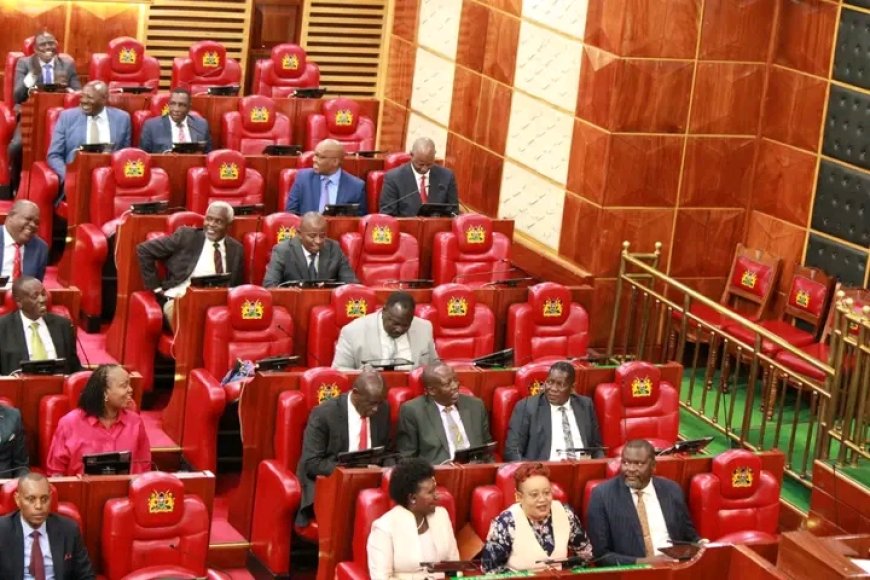National Assembly approves Bill to Prioritize local procurement and strengthen public funds safeguard

Nairobi,
Thursday, 28 November, 2024
McCreadie Andias,
In a significant move to support local businesses and strengthen public funds safeguards, the National Assembly has passed the Public Procurement and Asset Disposal (Amendment) Bill.
This legislation mandates county governments to prioritize procurement of goods and services from local producers within their respective regions, a step hailed as a major victory for domestic businesses.
Sponsored by Hon. Kuria Kimani, a Member of Parliament, the Bill amends the existing Public Procurement and Asset Disposal Act (Cap. 412C), aiming to enhance transparency, accountability, and efficiency in public procurement processes.
The new legal framework emphasizes local procurement, promotes technology transfer, and seeks to mitigate the misuse of public funds. The Bill introduces various provisions that will have a lasting impact on how county governments handle procurement and asset disposal in the future.
A key feature of the Bill is its requirement for county governments to prioritize procurement from local firms. This is a breakthrough for local entrepreneurs and businesses that have long faced barriers to competing with larger foreign companies in public procurement.
By setting a threshold for how much procurement must be allocated to local firms, the legislation ensures that more opportunities will be available to homegrown businesses.
The Bill also imposes strict penalties on companies that attempt to bypass these provisions. Such measures are designed to safeguard against any efforts to undermine the law's intent and ensure that the benefits of local procurement are fully realized.
The new Bill introduces additional provisions aimed at enhancing the long-term sustainability of local businesses. Foreign firms bidding for public contracts will now be required to submit detailed plans outlining how they intend to transfer technology, knowledge, and skills to local workers and companies. These plans will be closely monitored by the Public Procurement Regulatory Authority (PPRA), which will oversee their implementation to ensure that local capacity is built through these contracts.
This provision is designed not only to protect local interests but also to create a skilled workforce capable of competing at higher levels. By mandating foreign firms to contribute to technology and knowledge transfer, the Bill seeks to foster innovation and strengthen the technological base of local industries.
In an effort to prevent procurement irregularities, the Bill empowers investigative agencies to probe issues even if they are under review by the Public Procurement Review Board.
This enhanced oversight aims to close any gaps in the current procurement system, ensuring that corrupt or fraudulent activities are swiftly addressed. The legislation also introduces tougher penalties for substandard work and for any entities found guilty of fraudulent practices during the procurement process.
Additionally, the Bill requires rigorous due diligence procedures when evaluating bids, including mandatory site visits and document verification, to ensure that the projects meet the necessary standards. This increased scrutiny is set to reduce the risk of fraud and mismanagement, thereby improving the overall effectiveness of public spending.
One of the more notable provisions of the Bill is the restriction on subcontracting. The new law prohibits local contractors from subcontracting to foreign companies unless there is a clear and justified need for expertise that cannot be sourced locally. This measure ensures that local businesses are not sidelined in favor of foreign firms and that the benefits of public procurement remain within the country.
The passing of this Bill is a milestone for local businesses across Kenya. It provides a clear pathway for them to access more opportunities, while simultaneously ensuring that public procurement processes are more transparent, accountable, and efficient.
By empowering county governments to prioritize local procurement, the government is reinforcing its commitment to fostering economic growth from within, protecting public funds, and creating a stronger, more sustainable local economy.
As the Bill now moves forward for implementation, stakeholders, including businesses, government agencies, and local authorities, will need to collaborate closely to ensure the success of these reforms.
With the right mechanisms in place, the Public Procurement and Asset Disposal (Amendment) Bill could become a powerful tool in strengthening Kenya's local industries and safeguarding the interests of its citizens.
What's Your Reaction?



































































































































































































































































































